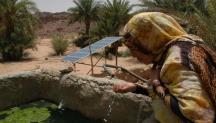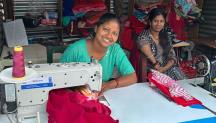

Call for Robust Policy Framework at IRENA’s Legislators Dialogue
Newsletter
IRENA held its second Legislators Dialogue during last week’s Investment Forum events that took place in the context of the G20 Energy Transitions Ministerial Meeting. Co-organised by the Global Renewables Congress (GRC) and Climate Vulnerable Forum (CVF), the Dialogue brought together parliamentarians of the G20 countries and from the Global South to discuss policy frameworks needed to turn climate adaptation commitments into action.
Calling upon legislators to translate parliamentary commitment to concrete action, IRENA Director General Francesco La Camera said parliamentarians play an essential role as the medium between the government and the people. “Action on the ground is part of the journey to achieving a sustainable, inclusive, and just future for everyone”, La Camera addressed legislators. “As you develop and draw policy frameworks that are suitable to your countries and regions, IRENA remains committed to supporting you throughout your endeavours. They are crucial to defining the future of your respective countries, regions, and the planet.”
Presenting some of the key policy initiatives for accelerating clean energy transitions, Dr Fadli Zon, Chair of the Committee for Interparliamentary Cooperation, House of Representatives of Indonesia, said, “The Indonesian Parliament has initiated the ‘New and Renewable Energy Bill’ to utilise the country enormous untapped potential of renewable energy which is close to 350 GW. We have also implemented carbon tax to reduce our fossil fuel consumption,” he added.
Bangladesh is frequently cited as one of the most vulnerable countries to climate change because of its disadvantageous geographic location. Saber Chowdhury, Member of the Bangladesh Parliament, said, “We are working towards changing the narrative from vulnerability to prosperity. To achieve this, Bangladesh has prepared the ‘Climate Prosperity Plan’ under which the country intends to obtain 30% of its energy from renewables by the end of the decade.”
Session moderator Conny Czymoch invited perspectives on the challenges associated with financing climate action, especially for poor and vulnerable countries. Sara Jane Ahmed, Finance Advisor, CVF, said that owing to high interest rates in low-income countries, securing climate finance is a huge challenge. “Through legislation and access to low-cost capital that can be made available by G20 and investors, we can ensure that economies of scale work together to drive down the cost of renewable energy deployment in these countries,” she added.
Bärbel Höhn, Chair, GRC, highlighted the need for a region-specific climate action plan. “The goal of the Paris Agreement is becoming exceedingly difficult to achieve. However, if international bodies can come together to establish region-specific climate action plans, then there is a chance we will reach our targets down the road. The GRC helps parliamentarians across the world who are working towards achieving 100% renewable energy deployment. This is our contribution to achieve climate justice.”




